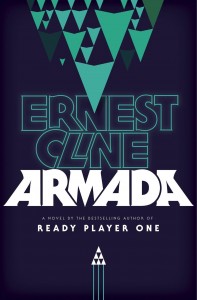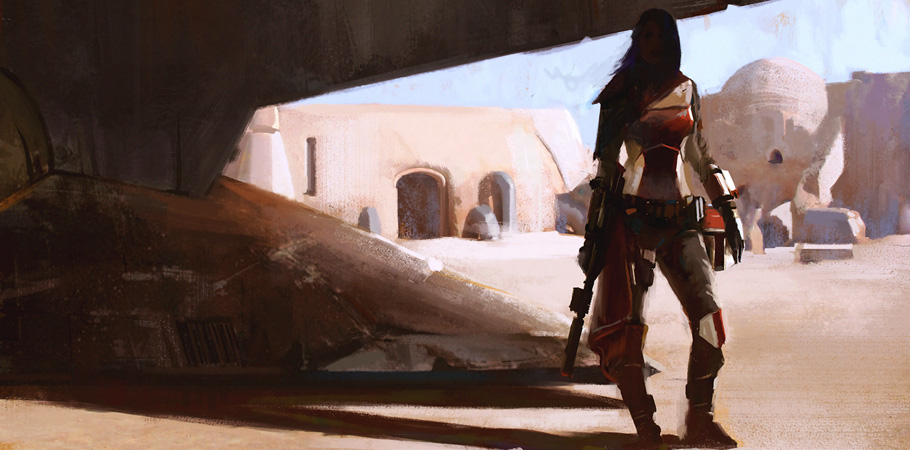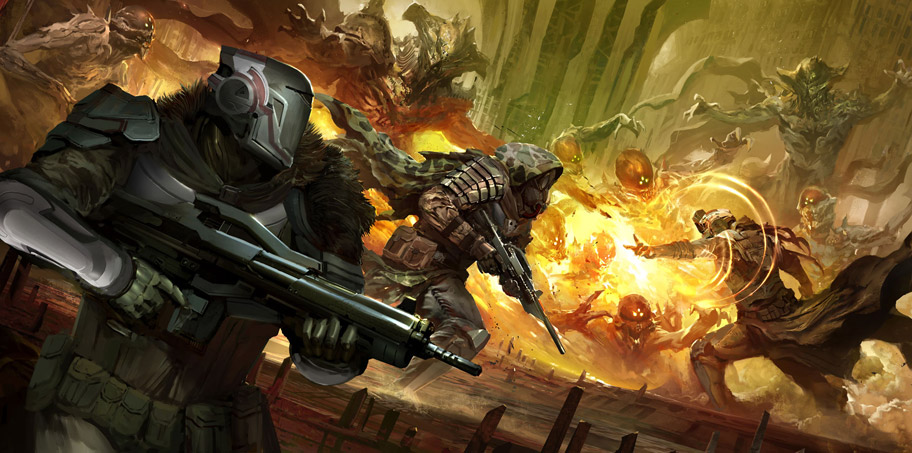Publisher: Crown -
Pages: 368 -
Buy: Book/eBook
Ernie Cline’s novel Armada dropped last week with an enormous publicity campaign that’s sure to get this book selling exceptionally well. Cline has been riding high on his debut novel, Ready Player One, an Easter-egg infused novel that hit the nerd sweet spot with a hefty dose of references and nostalgia. The problem with Armada is that it’s absolutely, fucking terrible.
The plot is basic. A spacecraft drops by the school of one high school gamer, Zack Lightman, and tells him what absolutely every gamer wants to hear: Aliens are about to attack Earth and a secret military organization has shepherded video games, movies, novels and television shows to help attune humanity into fighting back against the alien invaders. On top of all that, Lightman’s one of the top gamers in the world, and that because of his scores in Armada, he’s one of the last best hopes for humanity. He’s brought to a secret base on the Moon, where he meets his long-lost (and presumed dead) father, who’s helping to oversee the counter attack. Read More »
From Tiptree to Leckie to L’Engle and Cherryh, science fiction has a rich history of women writing progressive and popular fiction. One could argue that modern science fiction was vitalized by Shelley, and Ursula K. Le Guin has been an ambassador for fantastic and thoughtful fiction for decades. And, of course, now they’re the destroying it one novel at a time.
Recently, the /r/printSF sub-Reddit began a conversation about the best science fiction by women. I realized that I’ve read a woefully small number of the listed books, and this spurred some thought in my head about continuing this conversation, and using it as an opportunity to highlight some of the best science fiction books by women.
My own experiences within science fiction are fairly shallow (at least in terms of the scope of this project), so I asked some of my favourite authors and writers to tell me a bit about their favourites. So, join me, Julie Czerneda, Ann Leckie, Francis Knight, Andrew Liptak, Teresa Frohock, and Maureen Kincaid Speller as we gush about some of the best novels that science fiction has on offer. Read More »
I’ve recently been thinking of science fiction as literature of the moment, an examination of how we look at the world and all of the many changes that pass us by. Given the state of the world, military science fiction has long struck me as a way to make sense of the global impact of the ‘war on terror’ and other related actions across the world.
Rugged individualism and a sense the edge of the world is an opportunity, no matter who’s already there.
Predominantly, Military Science Fiction as a distinct subgenre comes out of works published in the 1950s by American science fiction authors, namely Robert Heinlein and Gordon R. Dickson, whose respective books Starship Troopers and Dorsai!, have spawned an entire industry of imitators. Steeped in the fears of the Cold War, these novels were written at a time when global annihilation appeared imminent, held back only by the raw power held by the United States Armed Forces and the inherent greatness of the American way. This lines up strongly with other trends one sees in American strains of Science Fiction: rugged individualism and a sense that the edge of the world is an opportunity, no matter who’s already there.
Science fiction tends to carry along its baggage for a long time. While there’s been an incredible evolution of outstanding stories, the genre’s frequently saddled with a pulp characterization; the incredible changes from the so-called Golden Age to the New Wave and beyond simply doesn’t register. Military SF, in many ways, has a similar history: it remains, in many people’s minds, a relic of the 1950s, when the Cold War raged between the politicians and armies of the US and USSR. In retrospect, it’s appears to be a simpler conflict than what we face today. Read More »



